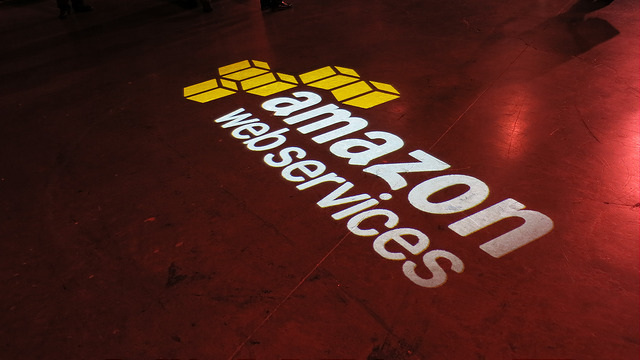 CLOUD
CLOUD
 CLOUD
CLOUD
 CLOUD
CLOUD
Amazon Web Services Inc.’s re:Invent conference saw a flurry of activity on its second day Tuesday with the public cloud giant and a host of its partners falling over themselves to announce a range of new products and services.
The main announcements were reserved for Amazon itself, which said it added new features to its AWS Marketplace and expanded its AWS Partner Network and AWS Competency Program. The company also found time to roll out a new service called AWS PrivateLink, which allows allows software-as-a-service application developers who build on AWS to offer private endpoints as an additional option for accessing their service.
Amazon said it was adding a new feature for buyers and sellers on the AWS Marketplace called the Enterprise Contract, which is a standard contract governing terms such as liability, dispute resolution, IP protection, warranty and more. The enterprise contract adds to existing template agreements such as Amazon’s SaaS contracts, which provide flexible subscription options for sellers on the marketplace, and its Seller Private Offers feature, which allows partners to provide specific pricing and licensing terms.
In addition, the AWS Marketplace gained a new Private Image Build feature for customers to build Amazon Machine Images that can combine with third-party software from the company’s partners. Amazon said that by running third-party software on their own private images, customers can better comply with governance policies and security requirements.
Amazon also said its extending its AWS Partner Network with a new AWS Solution Provider Program that will replace its Channel Reseller Program when it launches in early 2018. Under the new Solution Provider Program, APN Consulting Partners will benefit from a new tiered incentive structure when they achieve competency in areas such as migration, managed services and DevOps, Amazon said.
As for the PrivateLink service, it’s all about security, Amazon said. With the service, developers can now provide access to their applications and services via a Virtual Private Cloud without exposing the VPC to the public Internet. What this means is that AWS customers can now use their VPCs ability to limit access to the web in order to protect against security breaches, while still being able to access SaaS applications from third parties. Previously, customers were unable to do both at the same time, Amazon said.
Tuesday was also a busy day for Amazon’s partners, which were left scrambling to get their announcements heard above all the buzz.
Among the announcements that stood out was LogicMonitor Inc.’s updated cloud monitoring service, which now provides the ability to break-out and view cloud costs by operation in real-time. The new functionality means AWS users can follow and assess spend based on discrete actions in their account, and is designed for customers that need to “operate with maximum efficiency on the cloud,” LogicMonitor said.
Cloud security was also on the agenda Tuesday, as a startup called Aporeto Inc. introduced a new offering that’s designed to secure hybrid and multicloud applications. Aporeto said its new “zero trust” security offering replaces older network security based approaches with a simple identity and authorization system that’s able to monitor and protect applications continuously while they’re running. The company explained that it decouples security from infrastructure and networks by binding its software to the applications themselves, and using end-to-end authentication, authorization, and encryption techniques to keep them secured.
In addition, cloud infrastructure governance and automation startup Fugue Inc. also added to its platform’s capabilities at re:Invent. The startup said it’s adding new features that can shield AWS users from costly misconfiguration errors when using its cloud services.
The new features are said to work by automating compliance policy validation and enforcement. The end result is that users gain greater visibility into running cloud workloads, and any corresponding policy infractions and vulnerabilities, so these can quickly be fixed.
Support our mission to keep content open and free by engaging with theCUBE community. Join theCUBE’s Alumni Trust Network, where technology leaders connect, share intelligence and create opportunities.
Founded by tech visionaries John Furrier and Dave Vellante, SiliconANGLE Media has built a dynamic ecosystem of industry-leading digital media brands that reach 15+ million elite tech professionals. Our new proprietary theCUBE AI Video Cloud is breaking ground in audience interaction, leveraging theCUBEai.com neural network to help technology companies make data-driven decisions and stay at the forefront of industry conversations.